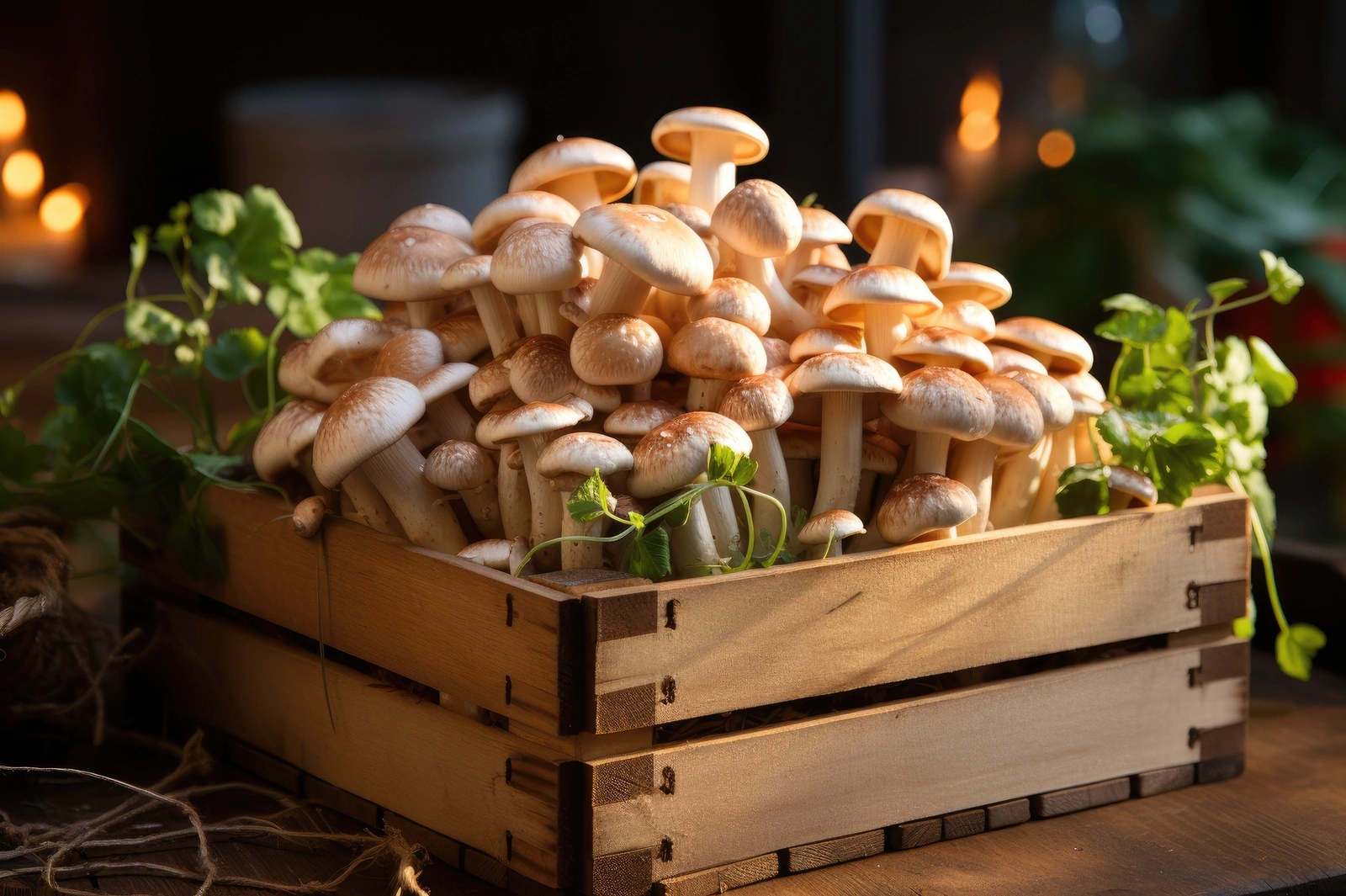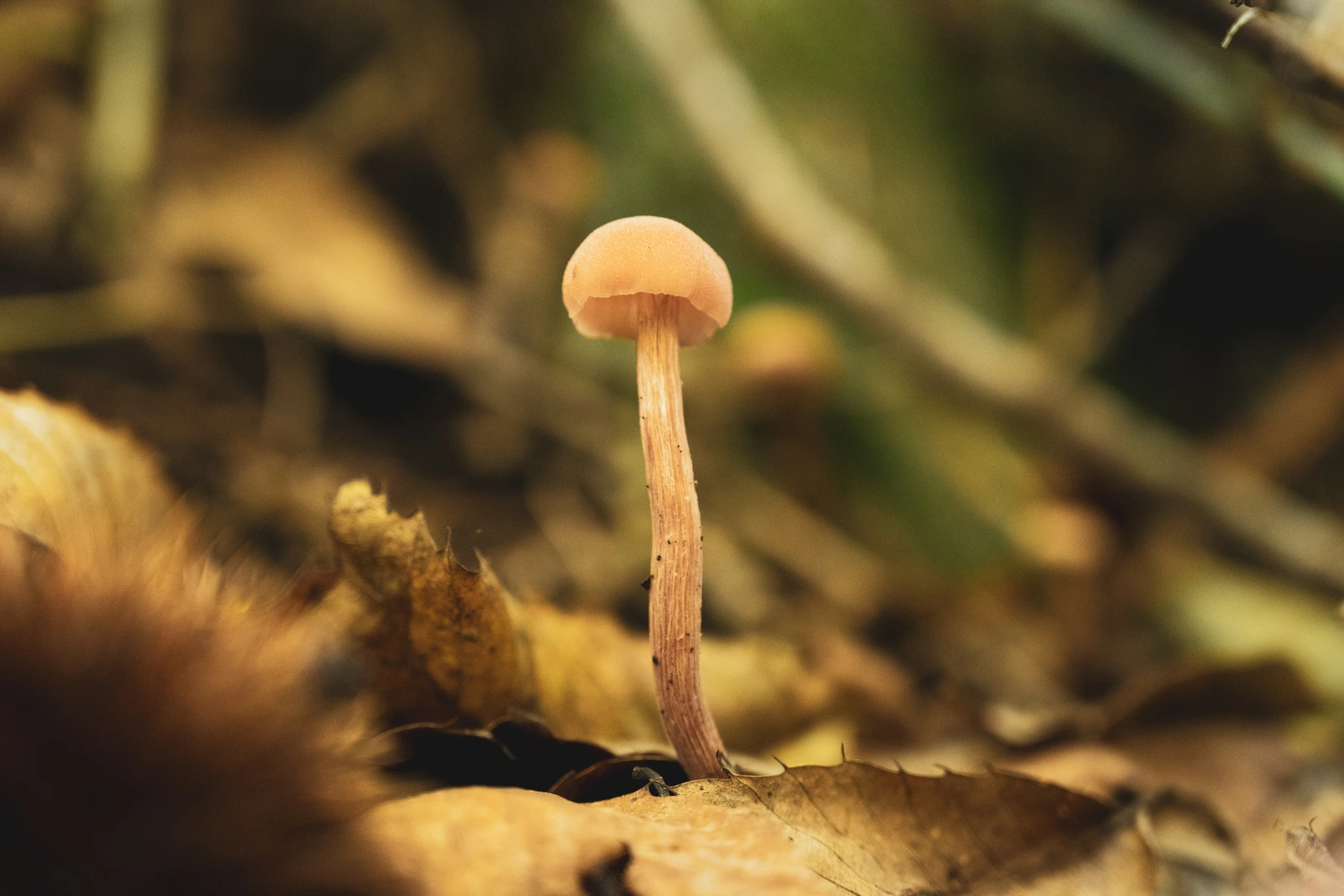Addiction | 3 min read
Are Psychedelic Mushrooms Addictive?
Medically Reviewed By

On July 3, 2025
Written By
On July 3, 2025

What you will learn
- Magic mushrooms aren’t typically addictive in the traditional sense (i.e., physical dependence), but there is a risk of psychological addiction.
- Psychedelic mushrooms are naturally occurring fungi, but they may cause psychological distress and some physical side effects, but serious physical effects are rare in healthy individuals and typically dose-dependent.
- Shrooms are classified as a Schedule I controlled substance, meaning they are considered to have no currently accepted medical use and a lack of accepted safety, but not necessarily a high potential for abuse relative to other Schedule I drugs.
- Psychedelic mushrooms can cause a person to lose touch with reality and increase the risk of dangerous behavior, which could lead to accidents and injuries.
Are magic mushrooms addictive? Research is ongoing to determine the addictive properties of psychedelic mushrooms. There’s no current evidence that these types of mushrooms are physically addictive, but they may be associated with psychological dependence. There are other adverse side effects of psychedelic mushrooms to consider, and some of them are serious.
What Are Psychedelic Mushrooms?
Psychedelic mushrooms, commonly referred to as “magic mushrooms” or “shrooms,” grow naturally across North America and South America. These fungi contain a chemical compound known as psilocybin.
Some people consume mushrooms for recreational purposes or to have a spiritual experience. Magic mushrooms are commonly consumed whole, brewed into a tea, or added to other foods, but heating can degrade psilocybin, potentially reducing potency.
How Do Shrooms Work?
When someone takes psychedelic mushrooms, their bodies convert the psilocybin into another substance called psilocin. Psilocin then binds to serotonin receptors in the brain.
According to the National Institute on Drug Abuse, psilocin affects serotonin receptors in the brain, particularly 5-HT2A receptors, leading to altered perception, cognition, and mood.[1] It can also cause an altered perception of reality. Psilocin is not associated with addiction in the traditional sense; it does not produce compulsive use, physical dependence, or withdrawal symptoms.
Are Psychedelic Mushrooms Addictive? Dangers of Psychedelic Mushrooms
Psilocybin is not considered physically addictive and does not produce drug-seeking behavior or withdrawal symptoms; however, adverse psychological reactions such as anxiety, confusion, and psychosis may occur, particularly at high doses or in unsafe environments.
Physical Side Effects of Magic Mushrooms
There is a significant risk of experiencing negative physical side effects after taking magic mushrooms. These risks are compounded for people who have an underlying medical condition. Mixing psychedelic mushrooms with other substances, including prescription medications, can also heighten these risks.
Many people take magic mushrooms to experience euphoria. However, some people may experience intense fear, anxiety, or disturbing hallucinations—often referred to as a ‘bad trip’—especially in unfamiliar, unsafe, or unsupervised environments. Some negative side effects reported by people who take psychedelic mushrooms include: [2]
- Increased heart rate
- Increased blood pressure
- Agitation
- Nausea
- Vomiting
- Muscle weakness
- Enlarged pupils
- Drowsiness
Psychological Effects of Psychedelic Mushrooms
In addition to the physical effects of magic mushrooms, there’s also the risk of adverse psychological effects. Some of these effects can lead to long-term mental health issues.
Short-Term Psychological Effects of Psilocybin Mushrooms
Some of the short-term psychological effects of taking shrooms include: [3]
- Panic attacks and extreme fear
- Hallucinations
- Inability to distinguish fantasy from reality
- Confusion
- Altered time perception
Long-Term Psychological Effects of Psilocybin Mushrooms
Possible long-term psychological effects of taking magic mushrooms may include: [4]
- Flashbacks
- Psychosis
- Memory problems
Hallucinogen Persisting Perception Disorder (HPPD)
Taking psychedelic drugs, including psychedelic mushrooms, has been linked to the risk of developing hallucinogen persisting perception disorder, or HPPD. This is a serious cognitive disorder that causes flashbacks and mood swings for up to years after taking these substances. [5]
Misidentification Risk
Psychedelic mushrooms can resemble many other types of fungi, including those that are toxic to humans. Some people intend to take magic mushrooms and end up taking poisonous mushrooms instead. This mistake can result in serious illness or even death.
Reckless Behavior
A major concern associated with taking psychedelic mushrooms is the risk of reckless or dangerous behavior. Taking shrooms can make people lose touch with reality, experience hallucinations and confusion, and change their perception of time. As a result, some people may engage in behavior that they wouldn’t normally participate in while under the influence of psychedelic mushrooms. In one survey of 2,000 people who had taken magic mushrooms, 11% said they had put themselves or someone else at risk. [6]
Legal Consequences of Using Shrooms
The U.S. Drug Enforcement Agency (DEA) has categorized psychedelic mushrooms as a Schedule I controlled substance under the Controlled Substances Act.[7] This means they have a high potential for abuse. Other schedule I drugs include marijuana, ecstasy, and LSD. Psilocybin remains illegal under federal law in the U.S., but some jurisdictions have decriminalized or deprioritized enforcement against personal use.
You’re Not Alone
Some people don’t consider psychedelic mushrooms harmful, but the risks of physical or psychological harm can be serious. If you or a loved one is abusing psychedelic mushrooms or other dangerous substances, you’re not alone. Although classic addiction patterns are not common with psychedelic mushrooms, individuals struggling with problematic or compulsive use may benefit from psychological support, holistic therapies, and harm-reduction strategies.
Frequently Asked Questions About Psychedelic Mushroom Addiction
While research is ongoing, multiple well-controlled studies have demonstrated potential therapeutic benefits of psilocybin, particularly in treatment-resistant depression, anxiety, and PTSD, though these uses remain investigational and are not yet FDA-approved. Any benefits that might exist are overshadowed by the serious risks involved with consuming psychedelic drugs.
The risk of an overdose, including a fatal overdose, is very low. There is a high potential that you could have a “bad trip” that leads to short or long-term psychological issues, though.
Psilocybin mushrooms are being actively studied for their potential mental health benefits, particularly in clinical settings for depression, anxiety, PTSD, and addiction. However, they remain illegal for general use and are not yet FDA-approved.
Yes. Although psychedelic mushrooms aren’t linked to long-term physical damage to the brain, they can cause psychological issues. Some of these mental health issues, including hallucinogen persisting perception disorder (HPPD), can be long-term.
Ascendant New York Editorial Guidelines
Here at Ascendant New York, we understand the importance of having access to accurate medical information you can trust, especially when you or a loved one is suffering from addiction. Find out more on our policy.
[1] [2] U.S. Department of Health and Human Services. (2024, October 15). Psilocybin (magic mushrooms). National Institutes of Health. https://nida.nih.gov/research-topics/psilocybin-magic-mushrooms#is-psilocybin-safe
[3] [4] Substance Abuse and Mental Health Services Administration (US). (n.d.). [table], psilocybin – facing addiction in America – NCBI Bookshelf. Facing Addiction in America: The Surgeon General’s Report on Alcohol, Drugs, and Health [Internet]. https://www.ncbi.nlm.nih.gov/books/NBK424847/table/appd.t17/
[5] [6] U.S. Department of Health and Human Services. (2025, April 25). Psychedelic and dissociative drugs. National Institutes of Health. https://nida.nih.gov/research-topics/psychedelic-dissociative-drugs#drugs-safe
[7] Drug scheduling. DEA. (n.d.). https://www.dea.gov/drug-information/drug-scheduling




